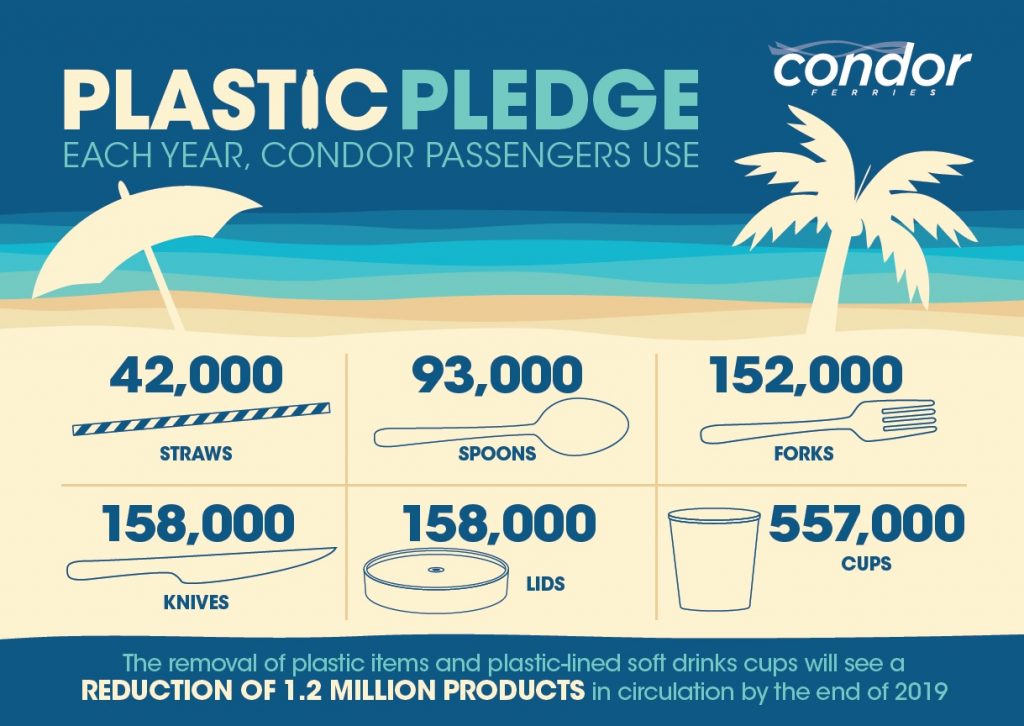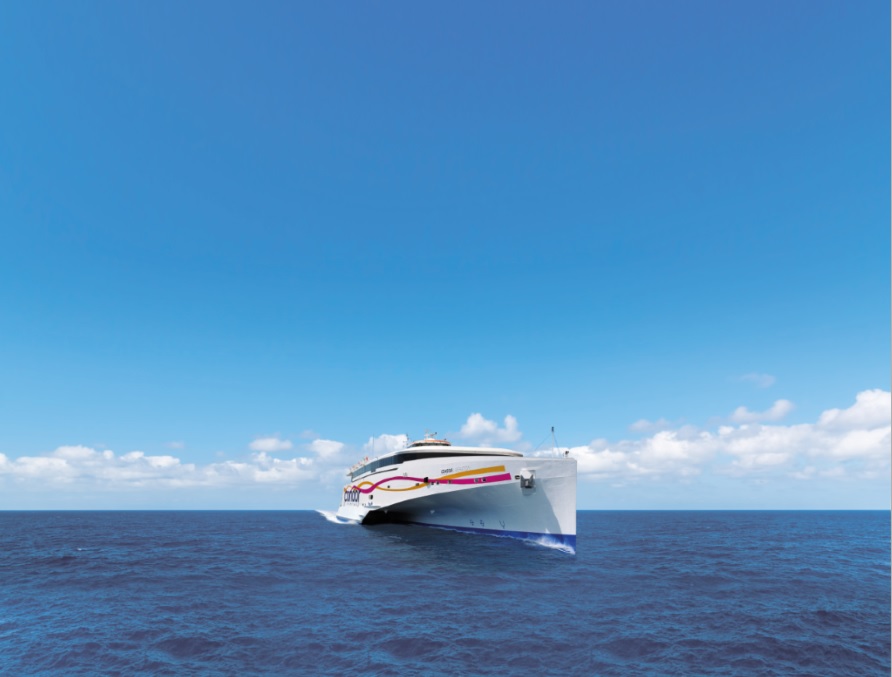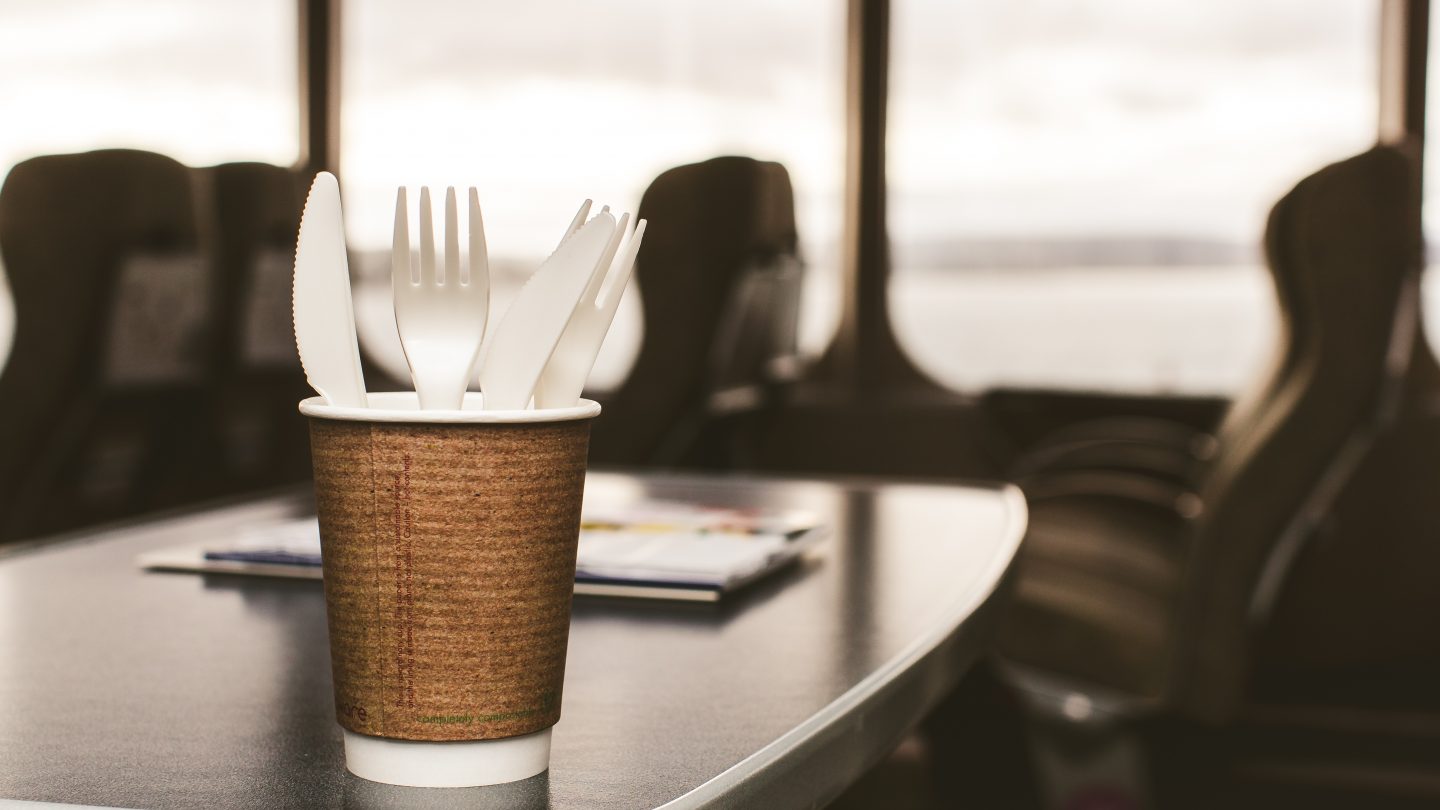The fight against plastic pollution is about everyone analysing the improvements that can be made in their world – and operational change at industry level is crucial to making progress.
That’s why we were so pleased to hear about Condor Ferries leading the way for its sector with its Plastic Pledge. We caught up with Jordan Smithson at Condor Ferries to hear more about the changes they are making at part of their pledge.
In a nutshell, tell us about your organisation
Condor Ferries operates ferry services between the UK, Channel Islands and France carrying more than 1 million passengers every year. Throughout 2019, we will be reducing the number of single-use plastic products across our fleet and aiming to reduce our plastic use by 75% by 2021.
Why is the plastic issue so important to your company?
We fully recognise we have a role to play so our aim is to lessen plastic in circulation by 75% by 2021. Like most other businesses, we accept there is a way to go to achieve this, but we are making progress in a number of areas.
What are you doing to tackle plastic pollution and what problems and successes have you had along the way?
We have already started to roll out a number of vegetable-based products such as Vegware cutlery and coffee cups which can be composted alongside our food waste onboard. We will be looking into installing recycling points on our ships and are looking into more ways we can help to reduce our plastic usage onboard through the possibility of biodegradable water bottles and seaweed packaging.

What would you say to convince others to take action on plastic?
We feel that everyone has a part to play to help the environment, no matter how big or small. By making any changes you can to the way you live, work or operate, we can all make a difference.
What do you think your industry should be doing to make a difference collectively?
If more companies in our industry (and others) progressively changed to compostable/recyclable non-plastic items then this would have a good effect on the environment. But if we all collectively purchased these items it would drive down the price – although this scares a lot of smaller businesses due to cost.
Can you tell us about some other inspiring plastic pioneers or projects that you admire, and why?
Companies and organisations are doing great things to help combat the plastic pollution problem. Companies such as CupClub, which aims to replace millions of disposable cups with reusable ones and collect and clean everything for reuse, are doing great things for the environment. Others, such as Costa are working to ensure that more of their cups get recycled with the aim to have up to 500 million cups recycled each year.
How can people find out more about your plastic-free quest?
We’ll be posting lots more on our website and social media channels over the coming months. On our website you can read our plastic pledge and get some helpful tips for having a plastic free holiday.

Read all our Plastic Pioneer interviews here – we’d love to hear your suggestions for people or organisation to feature in future. Contact us with any suggestions.




